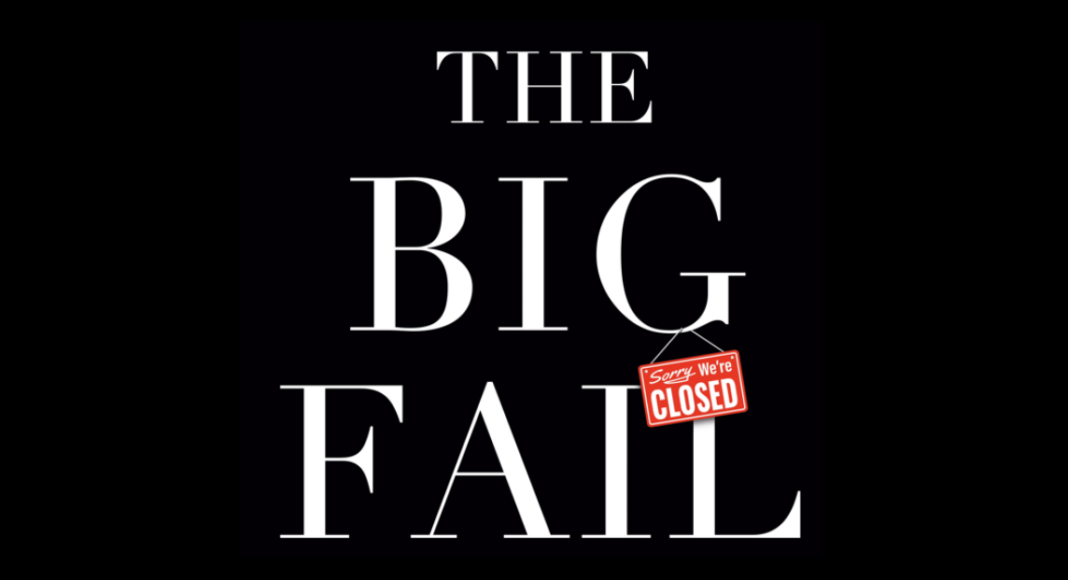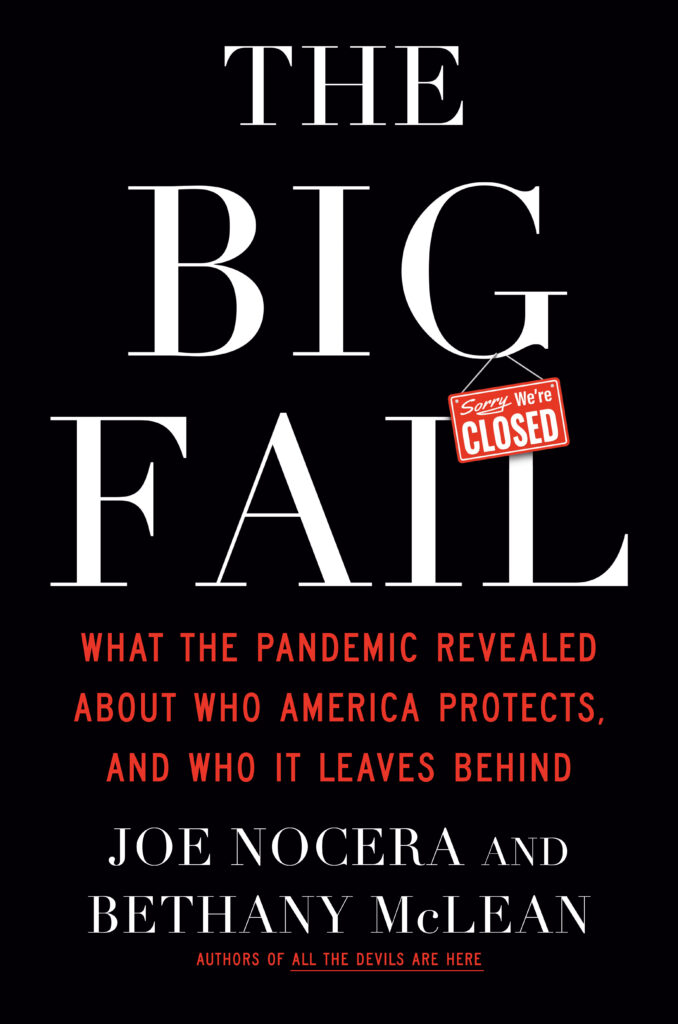The Big Fail co-author Bethany McLean — also co-host of Stigler Center podcast Capitalisn’t — sits down with ProMarket to discuss how concentration played a role in the United States government’s response to the Covid-19 pandemic.
How did concentration impact the problems caused by the Covid-19 pandemic?
Bethany McLean, who helped uncover the Enron scandal, has released a new book, The Big Fail, co-authored with fellow veteran journalist Joe Nocera. The new book details the United States government’s response to the Covid-19 pandemic.
ProMarket interviewed McLean to discuss the underlying problems of the U.S. healthcare system that contributed to the nation’s underwhelming response to the pandemic, including concentration in the industry due to hospital consolidation. We talk through what it would mean if capitalism were working as it should in this space to ensure the best outcomes for all.
McLean also discusses the impact of capture on various aspects of the government’s response. She posits that the Federal Reserve — which has come to the rescue of the markets many times now — has become captured by market expectations of a bailout. Additionally, we explore whether the government has set the right rules around private equity.
What follows is a transcript of our conversation with McLean, which has been edited for clarity.
Brooke Fox: Your book is called The Big Fail. Which of the fails, in your opinion, was the biggest?
That’s an interesting question. It’s a little bit like all the devils are here, when people ask which is the prime devil? I think it would have to be our broken health care system and the way in which it has left out a chunk of the population with pre-existing conditions. Because we don’t believe in preventative care, we believe in high-priced surgeries for when people get sick: that’s what our system rewards.
When Covid came along, it preyed on the very people whom our health system had left behind: people with preexisting conditions. Because of the health system inequities, those patients were often put into overcrowded hospitals that lacked good equipment. I think that’s the biggest fail.
There’s this great quote from Lyndon Johnson when he enacted Medicare and Medicaid, and I’m going to mangle it. But it is something along the lines of: “the future of our society depends upon the health of our people. Everything we want to do comes down to the health of our people.”
I think it’s a really important quote, because if you ever believed that people should get the health care they can pay for and it’s their problem if they can’t afford health care, well the pandemic shows we’re all in it together. Because if there’s a chunk of the population that can’t access health care, or when something like this happens, then the whole country is sicker as a result.
Does it feel like that was preventable? In your view?
I don’t think it was preventable unless we had a different health care system. One of the things Joe [Nocera] and I like to do is to look at what the preconditions were when a disaster hits because that often helps to shape what happens. In this case, I think the preconditions— the sickness in the U.S. healthcare system — had been many, many decades in the making. So by the time the pandemic hit, I don’t think there was anything that could have been done differently.
Did you see the effects of corporate concentration exacerbating any of the fails in this story?
It’s less exacerbating the pandemic than it is exacerbating the deeper problems in the U.S. healthcare system. One of the problems is hospital consolidation and the way in which it allows hospitals to effectively game insurance companies in order to get very high prices for their services.
I think this is both broadly a problem of concentration and also a problem of the way that the hospital system is structured. Because if capitalism were working as it should, then the hospital that offered the best quality services at the lowest price would be the one who wins. And that’s just not the way the American hospital system works. The hospitals making the most profits are often the ones who have figured out how to game the reimbursement systems in order to get very high prices for procedures. And I think that’s hugely problematic.
In your reporting for the book, what seemed to be the most glaring instance of corporate capture? The lack of private equity oversight?
So I think one part of corporate capture is the Federal Reserve. It’s complicated, but the Fed has had to come to the rescue of the markets a bunch of times now. They did when Long-Term Capital Management blew up, they did in the global financial crisis, and they did again in the pandemic. To some extent, of course, that’s the role you want the Fed to play.
But the market has also gotten very used to the Fed coming to the rescue with all the firepower it possibly can whenever there’s a hiccup or something bigger. That’s being tested now as the Fed tries to battle inflation. But I think in some ways the Fed has become captured by the market and I think that’s very, very dangerous because the bailouts each time keep getting bigger. And the safety net [for corporations] keeps getting expanded.
Another part of it, though, is that you’re right to focus on private equity because I think that the way in which private equity is allowed to rampage through pieces of American industry, when private equity’s value system is clearly at odds with the needs of other constituents is really problematic.
Their fiduciary duties are to their investors, so if you allow somebody to come in whose fiduciary duty is to their investors, and you allow them to come into an industry where other things are supposed to be at play, like people’s health, you’ve got a problem.
I don’t blame that on private equity, I actually blame that on the government. But then you can ask the question: to what extent the government has been captured by private equity because of all their considerable political donations. In the end, that’s the government not setting the right rules, whatever the explanation for it is.
Is there a particular political economy lesson that you think people should take away from the book?
Something Luigi Zingales, [co-host of Capitalisn’t], and I have talked about indirectly on Capitalisn’t is that there really isn’t any such thing as a pure free market; it all depends on the rules that are set down by society and by government as to how you want the market to function. So whether at the very most basic level, it’s the existence of a limited liability corporation or the existence of bankruptcy laws, those things are rules set down by society that then allows the market to function in a certain way.
I think we just have to look carefully at the preconditions of the market, even if you want market values to prevail. So for instance in healthcare if you want market values— who makes money—to determine who wins and who loses, that’s step two. But step one should be looking at how people make money, or how institutions make money. And if the way in which they make money is not because they’re good at what they do, or not because they’re delivering value, then you have to question the precepts of the market.
Articles represent the opinions of their writers, not necessarily those of the University of Chicago, the Booth School of Business, or its faculty.







